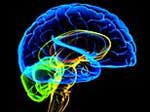O Ronaldo português mais famoso do Mundo...
2 participantes
Vagueando na Notícia :: Salas das mesas de grandes debates de noticias :: Noticias observadas DAS GALAXIAS SOBRE O PLANETA TERRA
Página 1 de 1
 O Ronaldo português mais famoso do Mundo...
O Ronaldo português mais famoso do Mundo...
Ronald A. DePinho

NEW YORK, Jan. 28, 2010
Mapping Cancer Genes to Find a Cure
Cancer Kills More than 500,000 Americans Annually; 1,500 People a Day
Where America Stands: Cancer
Cancer claims more than 500,000 American lives annually. In the "Where America Stands" series, Katie Couric reports on how the latest research is trying to move beyond chemotherapy to more targeted therapies.
Katie Couric On Cancer Research
One year later, Stand Up 2 Cancer plans to award $73 million to cancer research "dream teams." Katie Couric explains more to Harry Smith.
(CBS)
IN-DEPTH
Common Cancers
Risks, symptoms, detection and treatment of breast and other cancers.
STORIES
How Cancer Victims Can Double Survival
Scientists Unraveling the Cancer Genome
(CBS) In its "Where America Stands" series, CBS News is looking at a broad spectrum of issues facing this country in the new decade.
With a stroke of President Nixon's pen, the National Cancer Act of 1971 elevated the conquest of cancer to a national crusade.
"We may look back on this day and this action as being the most significant action taken during my administration," President Nixon said.
Almost 40 years later, America's so-called war on cancer drags on.
CBS Evening News Anchor Katie Couric reports the top five cancer killers account for nearly 13 percent of all deaths nationwide. Although the number of new cancer cases has been dropping by 1 percent a year, and cancer deaths have been falling by more than 1.5 percent, cancer still claims more than 500,000 American lives annually. That's 1,500 people every single day.
"That's about one every minute. That's like three jumbo jets crashing every day," said Dr. Francis Collins.
Collins is the director of the National Institutes of Health, and oversees the National Cancer Institute.
NCI's budge for cancer research this year is $5.1 billion. But Dr. Collins said if that sounds adequate, we better wake up and smell the coffee.
Learn More about Clinical Trials
"Over the last 30 years, we as a nation have spent $9 per American per year on cancer research. Enough to buy you a couple of lattes," he said.
Still, there have been strides. In the 1970's only half of those diagnosed with any form of cancer lived longer than five years. Now, about two-thirds do. Clearly, that still leaves America's report card with plenty of room for improvement.
"I'd give the country an 'A' for effort in terms of research," Dr. Collins said. "But I'd not really give us much better than about a 'C' in terms of implementation of that into radical new therapies that are both effective and low in toxicity."
THE PROBLEM
The problem facing today's scientific community? How to move cancer treatment beyond the carpet-bombing approach of standard chemotherapy into an era of smart bombs - using targeted therapies that destroy only the cancer.
Beverly Sotir, 71, was diagnosed with lung cancer three years ago.
Sotir is one of the 20 percent of patients diagnosed with lung cancer who never smoked. She said she smoked one cigarette at age 16.
An active mother of eight, and grandmother to 14, Sotir was told her cancer was in stage four in both lungs.
"They tell you, you have six months," she said. "And what are you going to do in six months?"
Sotir was first treated with standard chemotherapy - along with a somewhat "off the wall" form of therapy, all her own.
"You hung your lung scans in your bathroom," Couric asked. "Why?"
"Because when I came out of the shower, I wanted to see them," Sotir replied. "And I swear at them every morning."
But doctors at the Dana-Farber Cancer Institute in Boston had yet another approach in mind. Early last year, they screened her tumors for a specific gene called "ALK" - an abnormality found in about five percent of lung cancers, and also common in a type of lymphoma.
"We have a drug that happened to be on the shelf for this particular genetic alteration, that we can now simply apply to those five percent of lung cancers with that genetic alteration," said Dr. Ronald A. DePinho. Dr. DePinho, director of the Belfer Institute for Cancer Science at Dana-Farber, is working on a solution.
Sotir's now participating in a clinical trial - using that drug which targets the defective gene, and turns it off. In the last six months, some of her tumors have shrunk by more than 50 percent - others have disappeared.
"A knowledge of those genes and the genetic alterations that occur in cancer will provide us with new ways of attacking this most dreaded enemy," Dr. DePinho said.

NEW YORK, Jan. 28, 2010
Mapping Cancer Genes to Find a Cure
Cancer Kills More than 500,000 Americans Annually; 1,500 People a Day
Where America Stands: Cancer
Cancer claims more than 500,000 American lives annually. In the "Where America Stands" series, Katie Couric reports on how the latest research is trying to move beyond chemotherapy to more targeted therapies.
Katie Couric On Cancer Research
One year later, Stand Up 2 Cancer plans to award $73 million to cancer research "dream teams." Katie Couric explains more to Harry Smith.
(CBS)
IN-DEPTH
Common Cancers
Risks, symptoms, detection and treatment of breast and other cancers.
STORIES
How Cancer Victims Can Double Survival
Scientists Unraveling the Cancer Genome
(CBS) In its "Where America Stands" series, CBS News is looking at a broad spectrum of issues facing this country in the new decade.
With a stroke of President Nixon's pen, the National Cancer Act of 1971 elevated the conquest of cancer to a national crusade.
"We may look back on this day and this action as being the most significant action taken during my administration," President Nixon said.
Almost 40 years later, America's so-called war on cancer drags on.
CBS Evening News Anchor Katie Couric reports the top five cancer killers account for nearly 13 percent of all deaths nationwide. Although the number of new cancer cases has been dropping by 1 percent a year, and cancer deaths have been falling by more than 1.5 percent, cancer still claims more than 500,000 American lives annually. That's 1,500 people every single day.
"That's about one every minute. That's like three jumbo jets crashing every day," said Dr. Francis Collins.
Collins is the director of the National Institutes of Health, and oversees the National Cancer Institute.
NCI's budge for cancer research this year is $5.1 billion. But Dr. Collins said if that sounds adequate, we better wake up and smell the coffee.
Learn More about Clinical Trials
"Over the last 30 years, we as a nation have spent $9 per American per year on cancer research. Enough to buy you a couple of lattes," he said.
Still, there have been strides. In the 1970's only half of those diagnosed with any form of cancer lived longer than five years. Now, about two-thirds do. Clearly, that still leaves America's report card with plenty of room for improvement.
"I'd give the country an 'A' for effort in terms of research," Dr. Collins said. "But I'd not really give us much better than about a 'C' in terms of implementation of that into radical new therapies that are both effective and low in toxicity."
THE PROBLEM
The problem facing today's scientific community? How to move cancer treatment beyond the carpet-bombing approach of standard chemotherapy into an era of smart bombs - using targeted therapies that destroy only the cancer.
Beverly Sotir, 71, was diagnosed with lung cancer three years ago.
Sotir is one of the 20 percent of patients diagnosed with lung cancer who never smoked. She said she smoked one cigarette at age 16.
An active mother of eight, and grandmother to 14, Sotir was told her cancer was in stage four in both lungs.
"They tell you, you have six months," she said. "And what are you going to do in six months?"
Sotir was first treated with standard chemotherapy - along with a somewhat "off the wall" form of therapy, all her own.
"You hung your lung scans in your bathroom," Couric asked. "Why?"
"Because when I came out of the shower, I wanted to see them," Sotir replied. "And I swear at them every morning."
But doctors at the Dana-Farber Cancer Institute in Boston had yet another approach in mind. Early last year, they screened her tumors for a specific gene called "ALK" - an abnormality found in about five percent of lung cancers, and also common in a type of lymphoma.
"We have a drug that happened to be on the shelf for this particular genetic alteration, that we can now simply apply to those five percent of lung cancers with that genetic alteration," said Dr. Ronald A. DePinho. Dr. DePinho, director of the Belfer Institute for Cancer Science at Dana-Farber, is working on a solution.
Sotir's now participating in a clinical trial - using that drug which targets the defective gene, and turns it off. In the last six months, some of her tumors have shrunk by more than 50 percent - others have disappeared.
"A knowledge of those genes and the genetic alterations that occur in cancer will provide us with new ways of attacking this most dreaded enemy," Dr. DePinho said.
Última edição por Kllüx em Sex Jan 29, 2010 6:26 am, editado 1 vez(es)

Kllüx- Pontos : 11230
 Re: O Ronaldo português mais famoso do Mundo...
Re: O Ronaldo português mais famoso do Mundo...
Ronald A. DePinho

Department of Medicine and Genetics
Harvard Medical School, Dana-Farber Cancer Institute
Mayer Building, Room 413
44 Binney Street
Boston, MA 02115
Tel:(617) 632-6085
Fax: (617) 632-6069
Email: ron_depinho@dfci.harvard.edu
Web Page: The DePinho Lab Page
16 postdoctoral fellows, 2 graduate students
The DePinho laboratory studies the molecular and biological processes
governing the development of cancer, the basis for aging and
degenerative diseases, and the maintenance of normal and cancer stem
cells. The laboratory takes an integrated genomics and biological
systems approach to (i) discover and validate oncogenes and tumor
suppressor genes, (ii) elucidate the mechanisms driving
cancer-associated chromosomal instability with an emphasis on telomeres
and DNA damage checkpoint pathways, (iii) define the role of stem cells
and cancer stem cells and related developmental pathways in origins and
maintenance of tumors, (iv) the development and characterization of
mouse models of human cancer particularly pancreas, colon, brain,
breast and lymphoid systems, and (v) the discovery and development of
novel cancer therapies directed against newly discovered and
rigorously validated oncogenes.
Some of our ongoing efforts have centered on how mouse genetics and genomics can be
used to dissect the molecular mechanisms and biological processes
governing the genesis and maintenance of tumorigenesis. We have
previously worked on the Myc superfamily of oncoproteins (Myc) and
tumor suppressors (Mad) and defined the physical and functional
interactions among its members and how these interactions regulate gene
expression at the level of chromatin and thereby control the growth and
development of normal and neoplastic cells. We discovered that Mad
acts to repress transcription and suppress cancer in vivo, along with
our discovery of the mSin3 chromatin remodeling complex, has defined a
mechanistically distinct tumor suppressor pathway. Other tumor
suppressor pathway studies have elucidated the genetic and biochemical
relationship between Rb, p53 and PI3K pathways, particularly p16INK4a,
p19ARF and FoxOs, and have delineated an intimate link between pathways
that control cellular senescence and those that regulate cell cycle
entry or cell survival as well as stem cell homeostasis.
In our multi-disciplinary programs in glioblastoma (GBM) and Pancreas
Cancer (PDAC), two of the most lethal human cancers, we are addressing
a number of questions central to pathogenesis including (i) the
tumor's cell of origin and how the state of cellular differentiation
influences the oncogenic actions of prominent glioma-relevant
mutations, (ii) how such mutations contribute to specific biological
and clinical characteristics of the disease, and (iii) whether these
are required for both the genesis and maintenance of these cancers and
whether such knowledge can inform drug development.
A major program in the lab has studied the role of telomerase in cancer,
development and aging, and how telomere dynamics inter-relate to DNA
damage and recombination pathways. Finally, our construction of
inducible cancer models has permitted an in vivo analysis of the
complex symbiotic host-tumor cell interactions central to tumor
maintenance and progression of diverse types of cancers.

Department of Medicine and Genetics
Harvard Medical School, Dana-Farber Cancer Institute
Mayer Building, Room 413
44 Binney Street
Boston, MA 02115
Tel:(617) 632-6085
Fax: (617) 632-6069
Email: ron_depinho@dfci.harvard.edu
Web Page: The DePinho Lab Page
16 postdoctoral fellows, 2 graduate students
The DePinho laboratory studies the molecular and biological processes
governing the development of cancer, the basis for aging and
degenerative diseases, and the maintenance of normal and cancer stem
cells. The laboratory takes an integrated genomics and biological
systems approach to (i) discover and validate oncogenes and tumor
suppressor genes, (ii) elucidate the mechanisms driving
cancer-associated chromosomal instability with an emphasis on telomeres
and DNA damage checkpoint pathways, (iii) define the role of stem cells
and cancer stem cells and related developmental pathways in origins and
maintenance of tumors, (iv) the development and characterization of
mouse models of human cancer particularly pancreas, colon, brain,
breast and lymphoid systems, and (v) the discovery and development of
novel cancer therapies directed against newly discovered and
rigorously validated oncogenes.
Some of our ongoing efforts have centered on how mouse genetics and genomics can be
used to dissect the molecular mechanisms and biological processes
governing the genesis and maintenance of tumorigenesis. We have
previously worked on the Myc superfamily of oncoproteins (Myc) and
tumor suppressors (Mad) and defined the physical and functional
interactions among its members and how these interactions regulate gene
expression at the level of chromatin and thereby control the growth and
development of normal and neoplastic cells. We discovered that Mad
acts to repress transcription and suppress cancer in vivo, along with
our discovery of the mSin3 chromatin remodeling complex, has defined a
mechanistically distinct tumor suppressor pathway. Other tumor
suppressor pathway studies have elucidated the genetic and biochemical
relationship between Rb, p53 and PI3K pathways, particularly p16INK4a,
p19ARF and FoxOs, and have delineated an intimate link between pathways
that control cellular senescence and those that regulate cell cycle
entry or cell survival as well as stem cell homeostasis.
In our multi-disciplinary programs in glioblastoma (GBM) and Pancreas
Cancer (PDAC), two of the most lethal human cancers, we are addressing
a number of questions central to pathogenesis including (i) the
tumor's cell of origin and how the state of cellular differentiation
influences the oncogenic actions of prominent glioma-relevant
mutations, (ii) how such mutations contribute to specific biological
and clinical characteristics of the disease, and (iii) whether these
are required for both the genesis and maintenance of these cancers and
whether such knowledge can inform drug development.
A major program in the lab has studied the role of telomerase in cancer,
development and aging, and how telomere dynamics inter-relate to DNA
damage and recombination pathways. Finally, our construction of
inducible cancer models has permitted an in vivo analysis of the
complex symbiotic host-tumor cell interactions central to tumor
maintenance and progression of diverse types of cancers.

Kllüx- Pontos : 11230
 Re: O Ronaldo português mais famoso do Mundo...
Re: O Ronaldo português mais famoso do Mundo...
allo alloe ensaio sou a joaninha a afi8nar a mesa
1...2....3...
1...2....3...

Joaninhavoa- Pontos : 122
 Tópicos semelhantes
Tópicos semelhantes» Melhor jantar do mundo servido em Lisboa O mais famoso dos cozinheiros, Ferran Adrià,
» Cristiano Ronaldo sofre acidente de viação O português Cristiano Ronaldo sofreu um acidente de viação com o seu Ferrari em Manchester.
» Português é terceira língua mais falada no mundo
» RESTAURANTE MAIS FAMOSO DO ALGARVE
» UM DOS CHEFES E RESTAURANTE MAIS FAMOSO DOS USA
» Cristiano Ronaldo sofre acidente de viação O português Cristiano Ronaldo sofreu um acidente de viação com o seu Ferrari em Manchester.
» Português é terceira língua mais falada no mundo
» RESTAURANTE MAIS FAMOSO DO ALGARVE
» UM DOS CHEFES E RESTAURANTE MAIS FAMOSO DOS USA
Vagueando na Notícia :: Salas das mesas de grandes debates de noticias :: Noticias observadas DAS GALAXIAS SOBRE O PLANETA TERRA
Página 1 de 1
Permissões neste sub-fórum
Não podes responder a tópicos